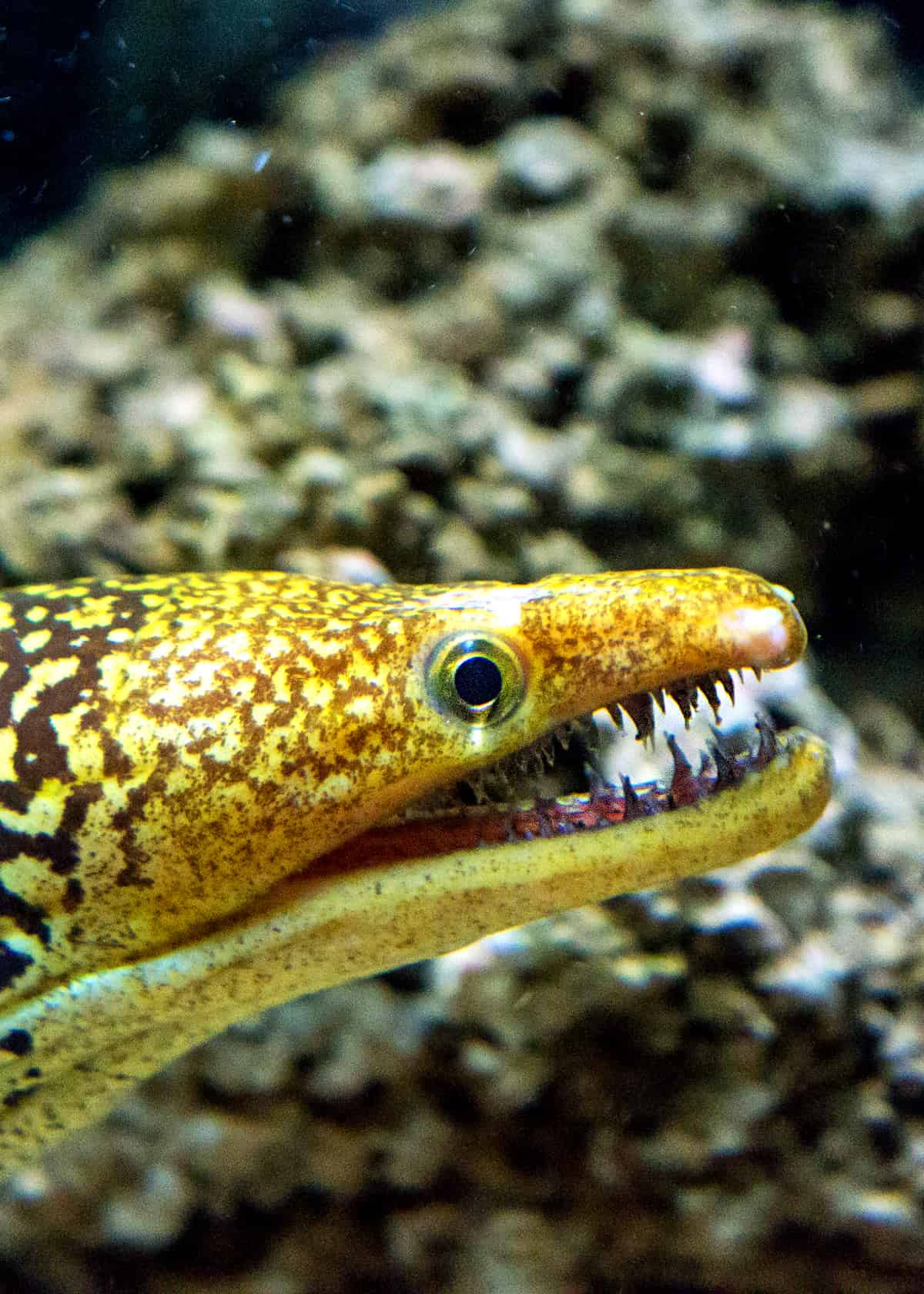
With more than 200 different species worldwide, this snake-like eel with sharp teeth is one of the underwater world’s top predators.

Often hiding in caves and coral reef, the moray eel is an ambush hunter with scaleless skin that secretes a slippery substance that’s toxic in some species.
With more than 200 different species worldwide, this snake-like eel with sharp teeth is one of the underwater world’s top predators.
https://en.wikipedia.org/wiki/Moray_eel
Several moray species are popular among aquarium hobbyists for their hardiness, flexible diets, and disease resistance. The most commonly traded species are the snowflake moray (Echidna nebulosa), the zebra moray (Gymnomuraena zebra), and the golden-tailed moray (Gymnothorax miliaris). Several other species are occasionally seen, more are difficult to obtain and can command a steep price on the market.[26]
Moray eels, particularly the giant moray (Gymnothorax javanicus) and yellow-edged moray (G. flavimarginatus), are known to accumulate high levels of ciguatoxins, unlike other reef fish.[27][28]Ciguatera poisoning is characterised by neurological, gastrointestinal, and cardiovascular problems. In morays, the toxins are most concentrated in the liver.[28] In an especially remarkable instance, 57 people in the Northern Mariana Islands were poisoned after eating just the head and half of a cooked G. flavimarginatus.[29] Thus, morays are not recommended for human consumption.